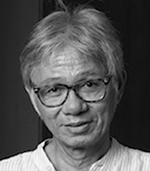

There should be no question in any normal mind that Leila de Lima is a victim of arbitrary detention. But normal – that is, fair, discerning, and humane – does not appear the nature of the Filipino mindset, judging by the scarce expression of sympathy for her and outrage at her persecution.
To be fair, though, the shortcoming is unintended in some cases and due largely to fear of reprisal, a very real fear, indeed, under the brutal regime of Rodrigo Duterte.
Definitely among De Lima's boldest supporters are those who visit her in jail. They face the closed-circuit television cameras installed all around the police grounds and, more harshly, the one inside the first room they enter to log in and submit themselves to bag and body search. In another room, 25 to 30 paces out across a walled-in yard that narrows into passageway, the search is repeated, under similar electronic-eye watch – lest, I can only suppose, some contraband come falling out of camera range from the sky above. In fact, no visitor is cleared enough to be left alone: a camera records the entire visit.
It used to be much easier to visit; a preliminary clearing, decided, I suppose, from what security files may reveal by a computer click on the names of the prospective visitors, used to take a mere week at most; it now takes at least 10 days. I can only presume that more and more people are emboldened to visit.
De Lima's only time out of detention is when she is taken to her court hearings, although, even then, once out of the van, she is walked to the courthouse and along its corridors by a phalanx of police who crowd her out of sight of sympathizers lining the route. Naturally, any sympathetic attention to her plight, especially from foreign governments and international organizations, inspires hope, such as when the United Nations Working Group on Arbitrary Detention released its own findings in her case. And coming as they did on the second anniversary of her detention (on February 24 precisely), those findings must have evoked a particular poignancy.
The findings were prefaced thus: “The Government has the obligation to respect, protect and fulfill the right to liberty of person and that any national law allowing deprivation of liberty should be made and implemented in conformity with the relevant standards set forth in the Universal Declaration of Human Rights and other applicable international or regional instruments.”
The Working Group pronounced de Lima a victim of arbitrary detention under 4 of 5 categories of circumstances; the Duterte regime did not manage a sweep only because one category applies exclusively to foreign victims – Sr Patricia Fox, the Australian missionary accused of engaging in leftist politics, would have qualified if she had been detained, not deported.
The Group has established the following:
One, it was "clearly impossible to invoke any legal basis justifying [de Lima’s] deprivation of liberty."
Two, her detention resulted "from the exercise of the rights guaranteed by the UDHR [Universal Declaration of Human Rights]."
Three, there was "non-observance...of the international norms in relation to the right to fair trial...."
And 4, there was "prolonged administrative custody without the possibility of administrative or judicial review or remedy."
In a single, compact document, the Group makes a compelling case of not just arbitrary detention but unmitigated injustice. The case is scandalous enough in its barest summation: Senator Leila de Lima had been arrested and detained on allegations of illegal drug trafficking almost wholly on the testimony of convicts in for life for that precise crime. Since no concrete evidence – drugs or money proceeds from their trafficking or whatever – was found, the charge was downgraded to conspiracy, but she has remained in jail and continued to be denied bail.
About motives, indications are provided by antecedents going back to the days when De Lima was the chairperson of the Commission on Human Rights and Rodrigo Duterte was the mayor of Davao City and the subject of an inquiry by her commission for allegations of death-squad executions. She continued to hound him when she became justice secretary and afterward senator, and he president.
Evidently not one able to resist flaunting power and a chance at vengeance, Duterte, since becoming president, had repeatedly warned he was going after De Lima. For their part, the convicts who testified against her apparently did so in common cause: their privileges, including continuing to run their drug racket from inside prison, had been stopped by her.
And to add insult to injustice, the Duterte Supreme Court acquitted former President Gloria Arroyo and granted temporary liberty to Senators Juan Ponce Enrile, Jinggoy Estrada, and Bong Revilla; all 4 had been taken to court also during De Lima's watch as secretary of justice on suspicions of plunder, a non-bailable crime, and all are now aligned with Duterte.
If anything, the findings of the UN Working Group gives a sense of both what justice may be like properly done and of the untold mockery it has been subjected to in De Lima’s case. – Rappler.com